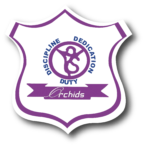Our Curriculum Overview
A Commitment to Excellence
We follow the NCERT curriculum under the instructions provided by National Education Policy 2020
The New Education Policy is a comprehensive framework for elementary education to higher education as well as vocational training. Our school had most of the policy being implemented from its inception except the change in the structural model of “5+3+3+4”.
The “10 + 2” structure will be replaced with the “5+3+3+4” model. This will be implemented as follows:

Foundational Stage: This is further subdivided into two parts: 3 years of preschool followed by classes 1 and 2 in primary school. This will cover children of ages 3-8 years. The focus of studies will be on activity-based learning.
Preparatory Stage: Classes 3 to 5 will cover the ages of 8-11 years. It will gradually introduce subjects like speaking, reading, writing, physical education, languages, art, science, and mathematics.
Middle Stage: Classes 6 to 8 will be covering children between ages 11 and 14 and will introduce students to the more abstract concepts in subjects of mathematics, sciences, social sciences, arts, and humanities.
Secondary Stage: Classes 9 to 12 will be covering children between the ages of 14-19 years. It is again subdivided into two parts: classes 9 and 10 will cover the first phase while classes 11 and 12 the second phase. These 4 years of study are intended to inculcate multidisciplinary study, coupled with the depth and critical thinking. Multiple options of subjects will be provided.
Experiential learning and blended learning are emphasized to impart curriculum in our institution. We aim at reducing the curriculum load of students and allowing them to be more “inter-disciplinary” and “multi-lingual”.
Report cards will be “holistic”, offering information about the student’s skills.
Co-Curricular Activities
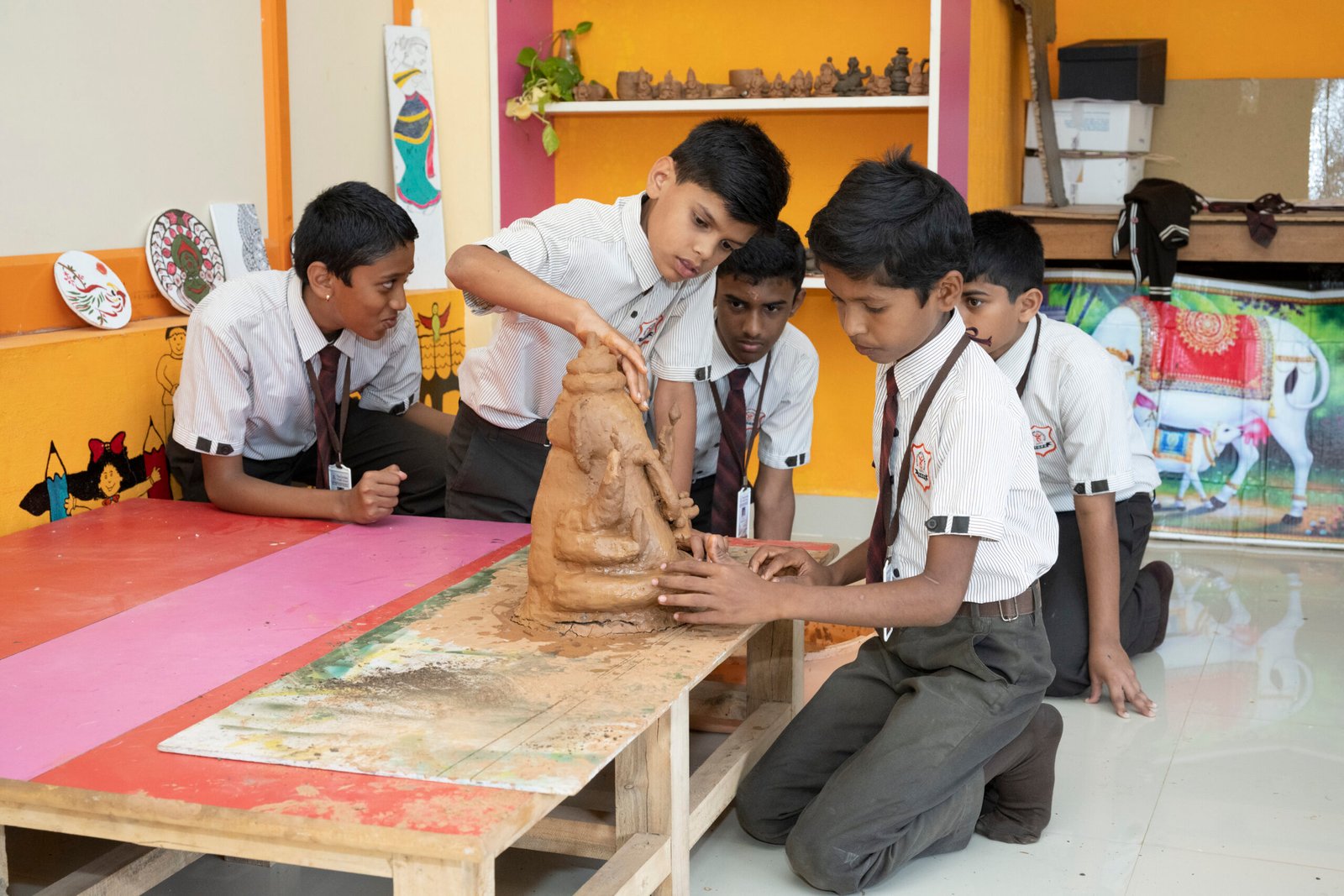
Arts & Crafts
The human psyche looks for a way of expression. We at Orchids facilitate a healthy way of expressing ourselves through creative arts like art and craft, music, and dance. Education isn’t for information gathering but is for the union of mind, body, and soul. Art and craft is a skill development strategy where children will perform with their own hands, create pieces of art that are practical, utilitarian, and beautiful. The school provides early exposure to Art & Craft to develop fine motor skills in a child. It will encourage children to build up their self-esteem and self-discipline. Every year a new form of art is introduced to our children through one-day workshops. Sanji art, Warli art, clay modeling, mask making, paper crafts, and animation are few to name.
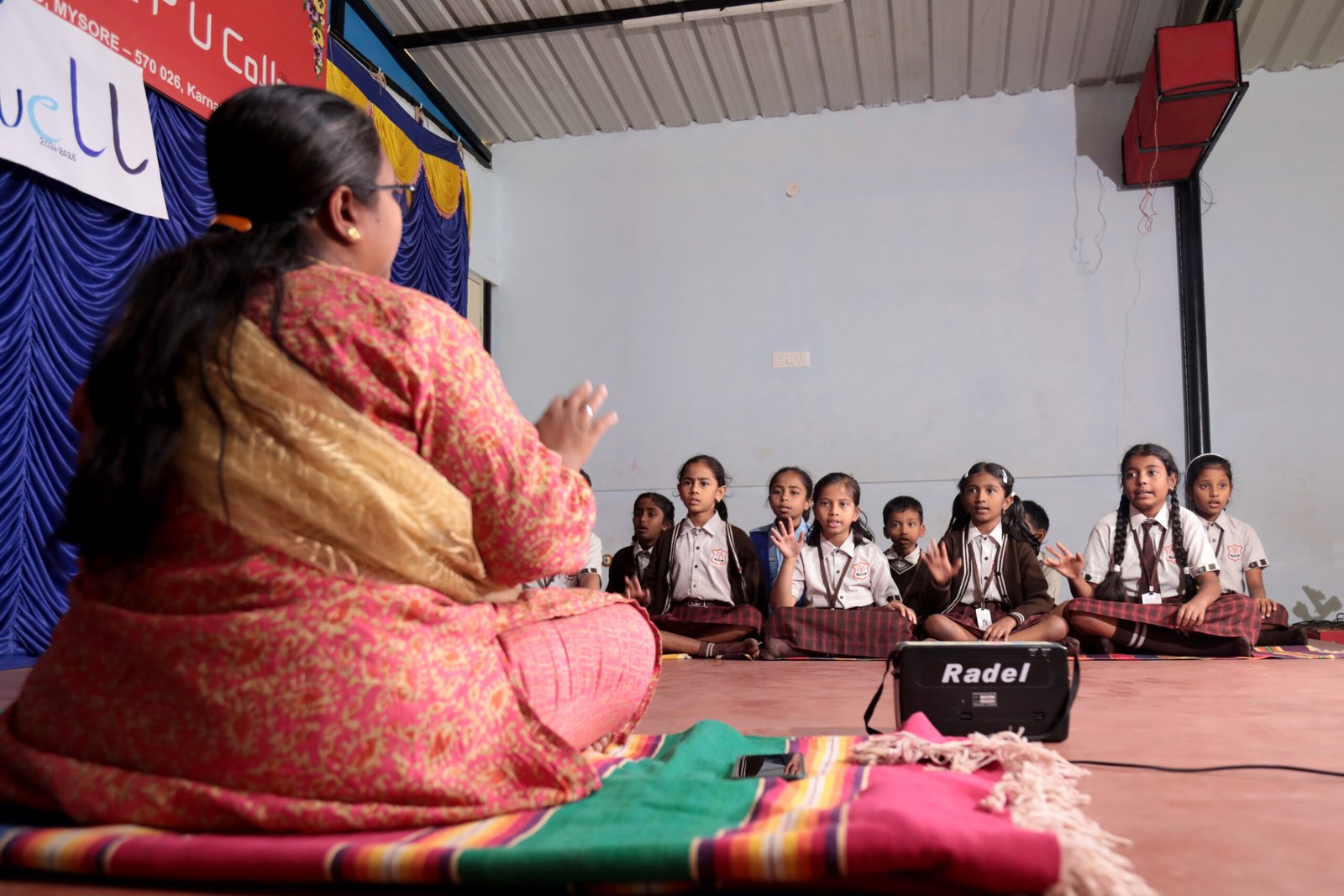
Music & Dance
All creative arts, art, and craft, music, dance, and karate are mandatory for our elementary children and we make it optional from grade 5. Children can choose between music and art and craft OR between Dance and karate. This ensures better practice hours and encourages children to concentrate on their specialized areas. Music and dance are an integral part of the fabric of our society. We teach different forms of dance and music. They enhance a child’s understanding of the subject and contribute significantly to intellectual development.

ATL (Atal Tinkering Laboratory)
ATL is a resource that can help students to explore their tinkering abilities with respect to a wide range of machinery be it digital, mechanical, electrical, or electronic. It can make our students create a machine as simple as levers to a machine that can create a 3D model or a machine that can work with the help of Artificial intelligence.
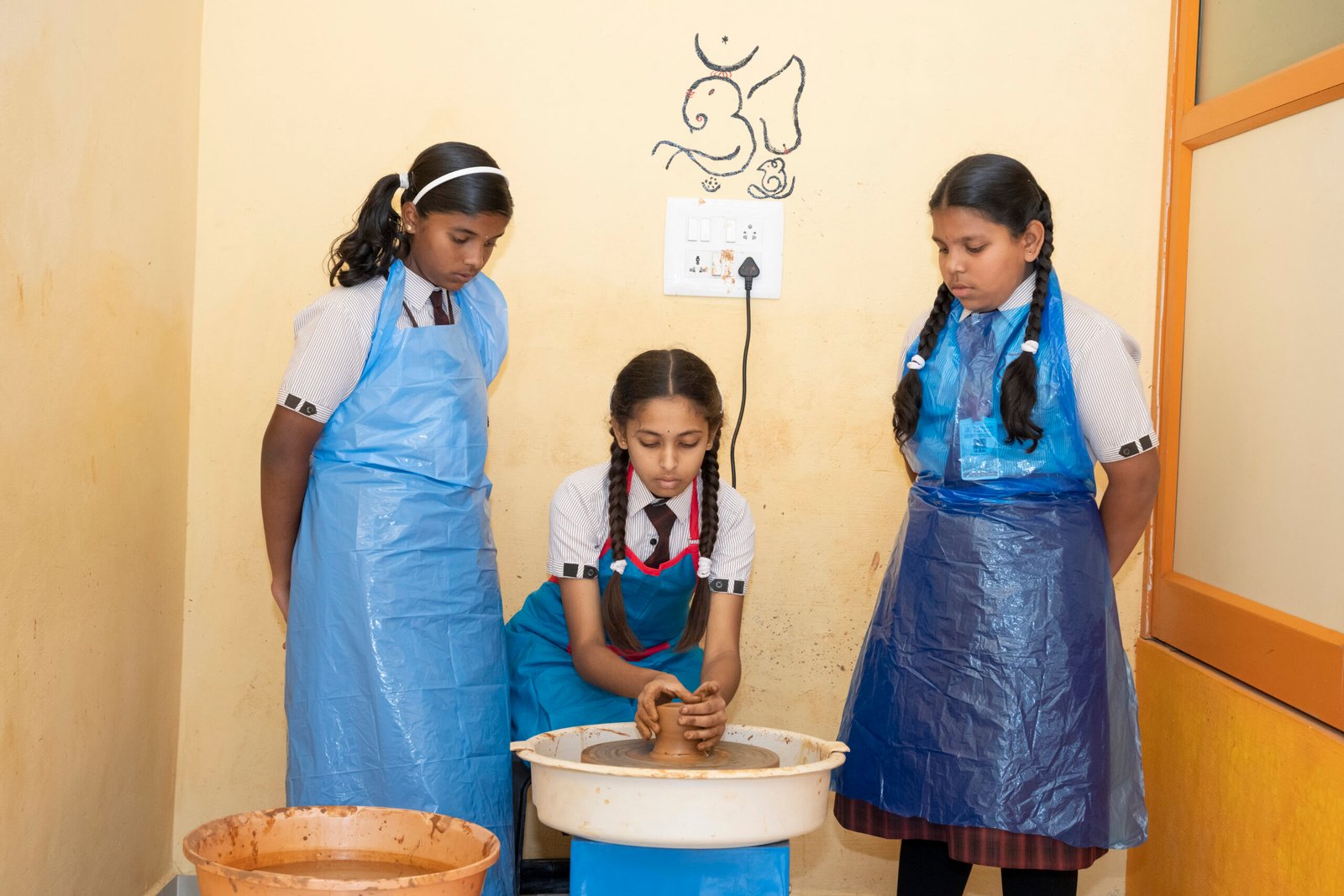
Pottery
Our Finger tips are in constant, direct communication with our brain through our body’s somatosensory system, a massive network of nerve endings and specialized touch receptors in the skin. So, activities such as playing in the sand or clay art or pottery can improve tactile sensitivity and be a vocational option at later stage of life.

Artificial Intelligence & IT
AI is the future we can’t do without. It needs coding as well to back it up. Along with the syllabus prescribed by the board, we shall have our coding classes and Atal Tinkering Laboratories to support AI classes.
The basics of computer and programming at secondary school stages are covered in the IT syllabi. Coding and AI are subject-specific whereas IT is an overall approach to all computer-related topics including coding and AI on a basic level.

Financial Literacy
Holistic Financial Literacy: Comprehensive coverage of essential financial concepts, ensuring students grasp the fundamentals of budgeting, saving, investing, and financial planning.
Real-World Relevance: Practical insights and real-life examples bridge the gap between theoretical knowledge and practical application, enabling informed financial decisions in everyday life.
Interactive Learning: Engaging exercises, activities, and case studies foster active participation, enhancing critical thinking and decision-making skills, promoting a deeper understanding of financial concepts.
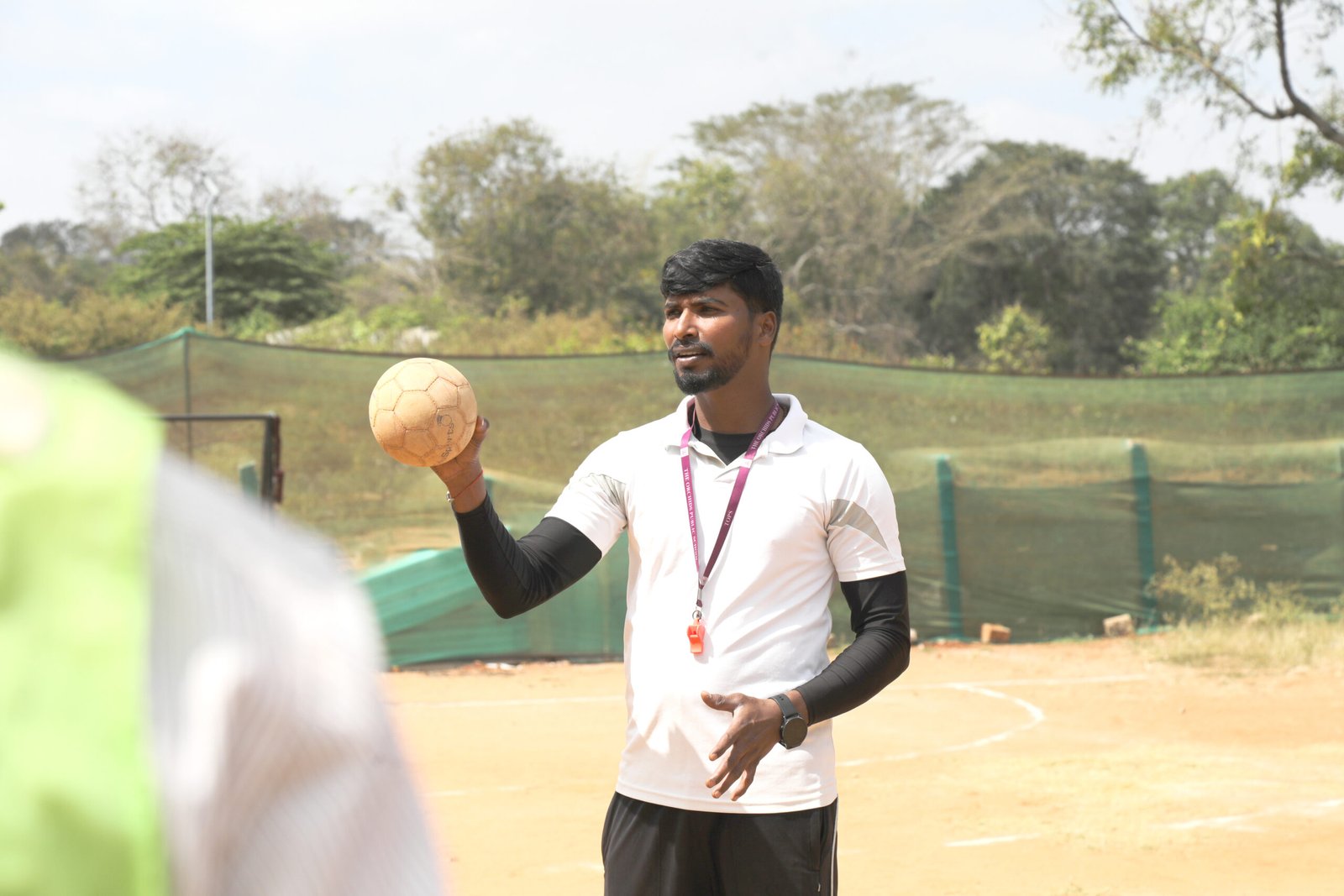
Physical Education Training
Early Years Physical Activity Facilitator works in play schools, day care centers, apartments and clubs to teach age appropriate physical activities to build fundamental skills and fitness in children up to the age of 8 years.
Early Years Physical Activity Facilitator looks after the smooth functioning of the physical activities and sports events of the school, organization, institute etc. He/She should possess the knowledge and skills of safety and management of play field, equipment and tools, conduction of sports events, assessment of student's physical activity and report preparation.
